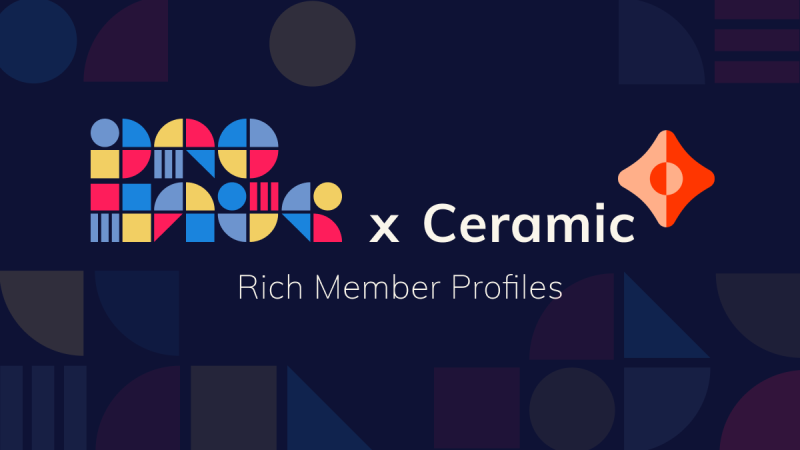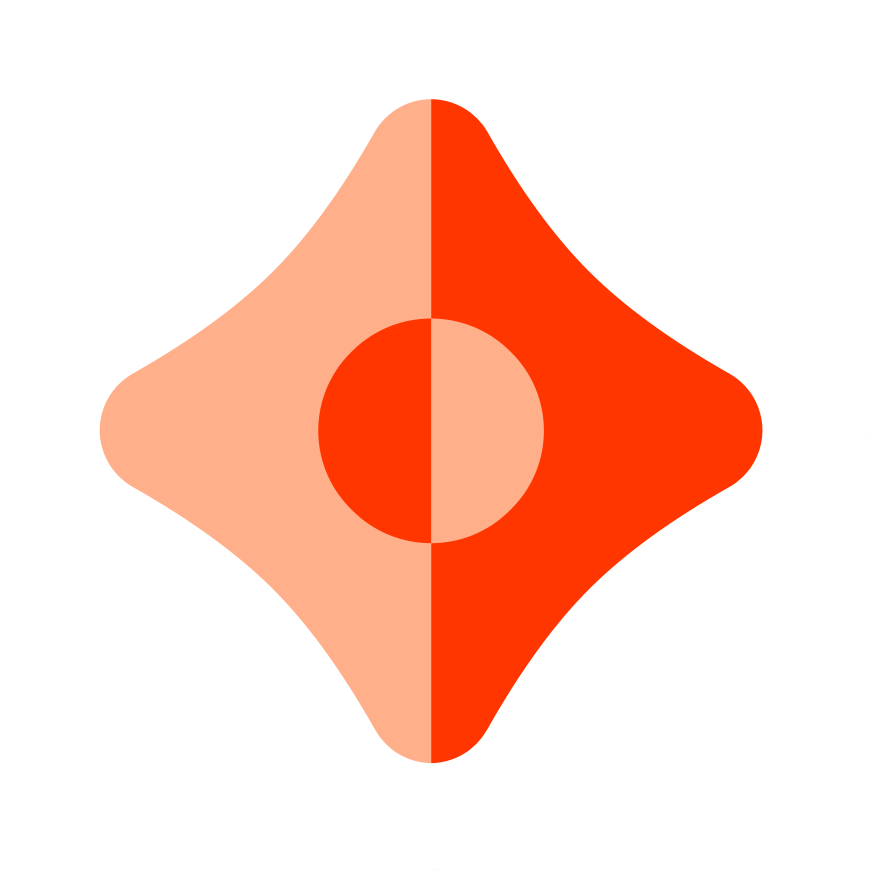DAOhaus adds functionality for rich member profiles for DAOs
DAOhaus has integrated Ceramic to bring rich profiles to DAO members.

DAOhaus’ mission is to unlock the next tier of community coordination by facilitating the transition from traditional organizations to DAOs.
DAOs are the most powerful way for communities to achieve their shared purpose and live their shared values, and DAOhaus strives to be the best platform for communities to do just that. DAOhaus is home to an ecosystem of hundreds of purpose-driven community DAOs. From giving grants, to building products, bringing together guilds of professionals, and even investing, DAOs using the DAOhaus platform are all focused on one core thing: empowering the humans in their community to achieve their shared purpose and values.
Do you belong to a community with those goals? Summon a DAO today on DAOhaus! Or, if you're looking to find a community that resonates with you, explore the hundreds of DAOs already using DAOhaus.
What is DAOhaus?
The DAOhaus platform is the easiest way for anyone to start a DAO. DAOs are a framework to help communities coordinate and achieve their shared goals.
At its core, DAOhaus is a human-friendly way for DAO members to engage in the activities that allow them to collectively manage common resources in service of a shared purpose, without relying on trusted executives. With DAOhaus, you can:
- Form (“summon”) a new DAO
- Issue members "Shares" representing voting power and economic exit rights (aka “ragequit”)
- Set up a shared Treasury that is controlled collectively by all members
- Make and vote on proposals with Shares
Extending the functionality of DAO tooling
DAOhaus also empowers DAOs beyond these foundational activities. For example, using a feature called Minions, DAOs can interact with any external smart contract, for example to make a deposit into another DeFi protocol, buy an NFT, or disperse tokens to multiple recipients. Minions can also have more narrowly-scoped functionality, such as with our Superfluid Minion that allows a DAO to send and receive token streams (think sending contributors a continuous stream of payment rather than a lump sump after all work has been delivered).
These Minions are one kind of DAOhaus Boost, which are add-ons that DAOs can optionally install to expand their capabilities. Some Boosts are built by the DAOhaus core contributors, though many are built by community developers. All Boosts are discoverable, installable and configurable through the DAOhaus Boost Marketplace. Some examples of Boosts include Rarible Boost (which helps you buy & sell NFTs on Rarible) and Disperse Boost (which allows you to transfer tokens to other addresses).
DAOhaus aims to support purpose-driven community DAOs wherever they may be, and as such the platform is available on Ethereum Mainnet, xDai Polygon, Arbitrum, and Celo, with support for more EVM-compatible networks on the way!
The need for context around DAO member identity
DAOs are human-centric communities. With DAOhaus, DAO members make decisions and take collective action by coordinating explicitly with each other. It is imperative that DAO members are able to identify one another (whether with real names or pseudonymously) and have a shared understanding of who is involved in their community - whether that be leading a working group or submitting, sponsoring or voting on a given proposal. Without easy access to that context, members have difficulty navigating the social landscape of their DAO, which magnifies coordination overhead and stunts the community’s cultural evolution.
Identity in web3, as is the case in most DAOs today, is typically address based. Users represent themselves as their wallet or account address, but long hex strings are not sufficient. While ENS names are great for Ethereum mainnet, they don’t currently work across all the networks DAOhaus supports. Users need a human-readable identity solution that works across networks and the many tools DAOs commonly use.
Additionally, today DAOhaus relies on several centralized storage and API endpoints for things like DAO metadata (e.g., names, tags, descriptions, social media links, etc.) and Boost settings. As the team moves towards a more modular and open architecture to allow developers to further extend the platform and more easily build Boosts, they've begun migrating towards more decentralized storage and data solutions.
"We needed a performant, decentralized storage solution to store user data, and Ceramic was the obvious choice," - Keating, DAOhaus core contributor
Embedding identity as a coordination mechanism
To help DAOs better understand who is participating in thier communities, DAOhaus is using Ceramic to create rich and robust member profiles. Using Ceramic’s Self.ID to collect and display member names, avatars and emojis, members can now add clarity and a touch of personalization to their DAOhaus identity.
DAOhaus users can edit their Self.Id identity in the Profile section of any DAO they are involved in.
Interoperability across web3
Since Self.ID is built on Ceramic's permissionless data network, all user data stored in their profiles are:
- User-controlled: users own their own data and decide how and when applications can access it
- Composable & portable: application developers can access data from this shared data layer (if users already have a Self.Id created, the data will be displayed automatically within the DAOhaus app, and displayed in every other web3 app that uses Ceramic for profiles)
- Decentralized: data is stored in a decentralized manner, so no single application can censor, shut down or delete your data
- Multi-chain: with Ceramic, users can connect multiple accounts and wallets to a single DID to create a unified identity
Member profiles are available today on DAOhaus. Looking ahead, the team is exploring using Ceramic to power decentralized data for DAO organizational profiles, as well as metadata, Boost configuration, rich marketplace metadata, and more.
Having an identity controlled by a DAO framework enables a DAO to represent itself within web3 protocols and applications. The DAO identity would be represented as a decentralized identifier (DID) created on Ceramic, which could be linked to a multi-signature account (such as a Gnosis Safe) or Moloch DAO, ensuring multiple participants would need to sign off before any changes are made to any data. In this way, DAOs would be able to write and store data directly to the Ceramic network.
What's next for DAOhaus?
Core contributors of DAOhaus have released a new version of Minion that uses the Gnosis Zodiac protocol to allow a DAO to control a Gnosis Safe, adding new capabilities such as expedited execution of proposals and the ability to pull funds from the DAO Treasury in Minion proposals.
The DAOhaus community has been busy too, adding, among other things, two new Boosts in the Boost Marketplace: the Rarible Boost, which enables DAOs to to buy and sell NFTs, and the Disperse Boost, which enables DAOs to distribute tokens to multiple recipients in a single proposal.
Beyond these product releases, the team has been busy launching other community initiatives and onboarding more DAOs! If you want to see what else the team has accomplished in 2021, check out their Year in Review.
Looking forward, the team is preparing to support the new MolochV3 (Baal) DAO framework, which will add even more flexibility for DAOs. The new framework would give DAOs more support throughout the entire lifecycle, from additional options for summoning a new DAO, to vote delegation, embedded Minion functionality, and the ability to make Shares transferable. The team is also working on expanding support for additional L2 networks and sidechains, such as Optimism and potentially Fantom.
If you’re a member of an existing community looking to level up its coordination powers, or interested in starting a new community yourself, you can summon a DAO today with DAOhaus!
If you’re a developer or builder looking to contribute, hop into the DAOhaus Discord & let the community know! The community is actively looking for contributors to help build more Boosts to give DAOs even better tooling to pursue their purpose.
If you just want to learn more about DAOs, follow the team on Twitter (@nowdaoit) and Substack, or head to daohaus.club.
Website | Twitter | Discord | GitHub | Documentation | Blog | IDX Identity

